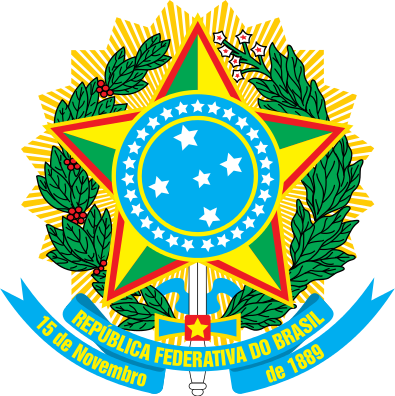Location
Following more than three centuries under Portuguese rule, Brazil gained its independence in 1822, maintaining a monarchical system of government until the abolition of slavery in 1888 and the subsequent proclamation of a republic by the military in 1889. Brazilian coffee exporters politically dominated the country until populist leader Getulio VARGAS rose to power in 1930. By far the largest and most populous country in South America, Brazil underwent more than a half century of populist and military government until 1985, when the military regime peacefully ceded power to civilian rulers. Brazil continues to pursue industrial and agricultural growth and development of its interior. Having successfully weathered a period of global financial difficulty in the late 20th century, Brazil was seen as one of the world’s strongest emerging markets and a contributor to global growth. The awarding of the 2014 FIFA World Cup and 2016 Summer Olympic Games, the first ever to be held in South America, was seen as symbolic of the country’s rise. However, since about 2013, Brazil has been plagued by a shrinking economy, growing unemployment, and rising inflation. Political scandal resulted in the impeachment of President Dilma ROUSSEFF in May 2016, a conviction that was upheld by the Senate in August 2016; her vice president, Michel TEMER, will serve as president until 2018, completing her second term.
Brazil is a federal presidential republic.
Source: CIA World Factbook
Members:
Resources
Displaying 111 - 115 of 180Decree of 5 September 2002 declaring of social interest, for the purposes of the agrarian reform, some properties in the States of São Paulo, Rio de Janeiro, Paraná, Pernambuco, Mato Grosso, and Ceará.
This Decree, composed of 4 articles, declares of social interest, for the purposes of the agrarian reform, the following rural properties: "Fazenda Encanto II", "Sítio Umari", "Fazenda Katira e Novo Carimbó", "Engenho Raiz de Dentro", "Rancho Baraldi", "Fazenda Almada e Marui", “Fazenda Santo Amaro e Companhia", "Fazenda Três Barras", "Fazenda Mesquita". The Decree establishes the competence of the National Institute for the Agriculture Reform (INCRA) to promote and supervise the expropriation of the aforementioned rural lands.
Decree of 21 November 2002 declaring of social interest, for the purposes of the agrarian reform, some properties in the State of São Paulo.
This Decree, composed of 4 articles, declares of social interest, for the purposes of the agrarian reform, the following rural properties in the State of São Paulo: "Fazenda São José da Barra", “Fazenda Santa Isabel", "Fazenda Jangada", "Fazenda Ipê", "Fazenda Retiro", "Fazenda Santa Maria da Lagoa", "Fazenda Santa Maria", Fazenda Santa Cristina", Fazenda Santo Antônio”, "Fazenda Floresta”, and “Fazenda Primavera I".
Decree of 5 November 2002 declaring of social interest, for the purposes of the agrarian reform, some properties in the State of Bahia.
This Decree, composed of 4 articles, declares of social interest, for the purposes of the agrarian reform, the following rural properties: “Fazenda Sítio Novo”, “Fazenda Flórida e outras”, “Fazenda Ipauaté”, “Fazendas Reunidas Nossa Senhora Auxiliadora - Farensa”, “Fazenda Caldeirão”, “Fazenda Paus Pretos”, “Fazenda Santa Virgínia”, “Fazenda Pau de Colher”, “Fazenda Murici”, “Fazenda Brasilândia”, “Fazendas Gerais Salinas e Caatinga de Nossa Senhora da Conceição”.
Decree of 4 December 2002 declaring of social interest, for the purposes of the agrarian reform, some properties in the States of Tocantins, São Paulo, Rio Grande do Norte, Piauí, Minas Gerais, Maranhão, Ceará.
This Decree, composed of 4 articles, declares of social interest, for the purposes of the agrarian reform, the following rural properties: "Conceição" , “Fazenda Rio Claro”, “Fazenda Ouro Verde Angicos”, “Fazenda São Lucas”, "Fazenda Araça”, “Fazenda Aracanguá”, “Fazenda Santa Amélia", "Fazenda Santo Ivo", “Fazenda Progresso”, “Fazenda Itapura”, “Fazenda Tauari”. The Decree establishes the competence of the National Institute for the Agriculture Reform (INCRA) to promote and supervise the expropriation of the aforementioned rural lands.
Decree of 6 November 2002 declaring of social interest, for the purposes of the agrarian reform, some properties in the States of Sergipe, Rio Grande do Norte, Pernambuco, Paraíba, Mato Grosso, Minas Gerais, Maranhão, and Alagoas.
This Decree, composed of 4 articles, declares of social interest, for the purposes of the agrarian reform, the following rural properties: “Bebidas” , “São Gregório”, “Fazenda Rio Claro”, “Fazenda Piratinga ou São Cristóvão”, “Fazenda Barreirão”, “Fazenda Bom Sucesso”, “Arara”, “Olho D‘Água”, “Serra Redonda”, “Lagedo Vermelho e Pedra D‘Água”, “Arara”, “Sítio Bom Conselho e Fazenda Porto Alegre”, “Fazenda Planaltina”, “Fazenda Lagoa do Sítio“Barreto e Pau D‘Arcos”, “Gravatá”, “Fazenda Arrastador e Flôr da Índia”.


